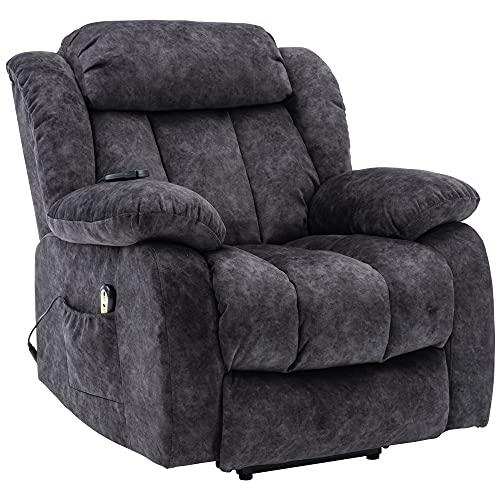10 Things Everyone Gets Wrong Concerning Nursing Recliner Chair
The Nursing Recliner Chair: Comfort and Support in Patient Care
In the health care sector, client comfort and nursing performance are paramount. Amongst the necessary furniture pieces that bridge the gap in between these two aspects is the nursing recliner chair. Designed particularly for health care environments, these chairs play a crucial role in boosting the experience of both patients and caregivers. This post looks into the numerous features, advantages, and considerations surrounding nursing recliner chairs, highlighting their significance in modern medical settings.
What is a Nursing Recliner Chair?
A nursing recliner chair is a specialized seating option developed to accommodate the requirements of patients and nursing staff. Unlike basic recliners, nursing recliners are crafted with functions that promote easy access, convenience during long hours of usage, and mobility. These chairs can get used to numerous positions, allowing nurses to sit conveniently while offering care, administering medication, or engaging with patients in a relaxing environment.
Secret Features of Nursing Recliner Chairs
The nursing recliner chair comes equipped with many functions that enhance both convenience and functionality:
Adjustability: Most nursing recliners use numerous reclining positions, enabling users to find their most comfortable angle. This function is specifically useful in environments where personnel may need to sit for extended periods while monitoring clients.
Durable Upholstery: The materials used in nursing recliners are typically easy to tidy and resistant to spots, making them well-suited for healthcare settings where health is critical.
Movement: Many models include wheels or casters, enabling caregivers to easily move the chair from one place to another without lifting.
Footrests and Armrests: Integrated footrests and padded armrests offer extra support and comfort, important for easing pressure throughout long shifts.
Height Adjustability: Some nursing recliners are height-adjustable to accommodate various client needs and to make the nursing staff's tasks more available.
Stability Features: Many chairs come with a robust frame and anti-tip functions to make sure safety for both clients and caretakers.
Benefits of Nursing Recliner Chairs
The intro of nursing recliner chairs into patient care environments yields a number of benefits:
Improved Patient Comfort: Creating a relaxing and peaceful environment can help lower client stress and anxiety, specifically in settings like medical facilities or long-lasting care centers.
Enhanced Caregiver Efficiency: By using nurses a comfy space to sit and supply care, these chairs permit more mindful monitoring without jeopardizing by themselves convenience.
Flexibility: Designed for numerous care environments— such as hospitals, rehabilitation centers, and retirement home— the nursing recliner chair adapts to numerous settings and client needs.
Assist in Interaction: By positioning caretakers closer to patients, nursing recliners assist promote much better interaction and a more individual technique to care.
Factors to consider When Choosing a Nursing Recliner Chair
When selecting a nursing recliner chair, numerous elements should be evaluated to ensure suitability for the desired environment:
Space Requirements: Evaluate the readily available space in nursing stations, client spaces, or waiting locations to figure out the suitable size and design of the chair.
Weight Capacity: It's important to pick chairs that can accommodate a range of client weights, ensuring safety and comfort for all people.
Ergonomics: Opt for chairs that support great posture and offer appropriate lumbar assistance to avoid strain on nurses throughout extended usage.
Fabric and Cleaning: Consider the ease of cleansing and upkeep when picking upholstery, as health care settings need high standards of health.
Budget: Nursing recliner chairs come at various rate points, making it needed to stabilize cost with features and sturdiness when making an acquiring decision.
Popular Types of Nursing Recliner Chairs
There are a number of types readily available, each accommodating particular requirements:
Type
Functions
Perfect Use
Fundamental Recliner
Simple reclining mechanism, durable fabric
General client care
Lift Recliner
Power lift system for easy patient access
Clients with movement difficulties
Geriatric Recliner
Wider seat, enhanced frame
Elderly care settings
Pediatric Recliner
Smaller sized size, vibrant designs
Children's healthcare facility wards
Multi-Position Chair
Flexible reclining alternatives
Various client needs
FAQs About Nursing Recliner Chair s
1. How do I clean up a nursing recliner chair?
Most nursing recliner chairs are made with upholstery that can be easily cleaned down with disinfectant wipes. Constantly examine the maker's cleaning directions for particular assistance.
2. Are nursing recliner chairs customizable?
Lots of manufacturers use modification alternatives, consisting of upholstery choice and additional functions like footrests or back assistance.
3. What is the average expense of a nursing recliner chair?
Costs for nursing recliner chairs can range substantially based on features and brand but normally fall between ₤ 200 to ₤ 1,500.
4. Heavy Duty Recliner Chair nursing recliners be utilized beyond a medical setting?
Yes, while they are developed with healthcare in mind, nursing recliners can also be utilized in home care settings, or for elderly individuals who need comfort and ease of use.
5. How long do nursing recliner chairs normally last?
With correct care and upkeep, a well-constructed nursing recliner chair can last a number of years, frequently approximately a decade or more.
Nursing recliner chairs play an essential function in improving patient care and convenience, in addition to supplying an encouraging space for nursing staff. With their specialized designs and multiple functions, they completely fulfill the needs of health care settings. As hospitals and care facilities continue to prioritize patient-centric care, the significance of such furnishings will become progressively apparent. Purchasing high-quality nursing recliner chairs is not practically comfort however is likewise an action towards improving the total experience for clients and caregivers alike.
